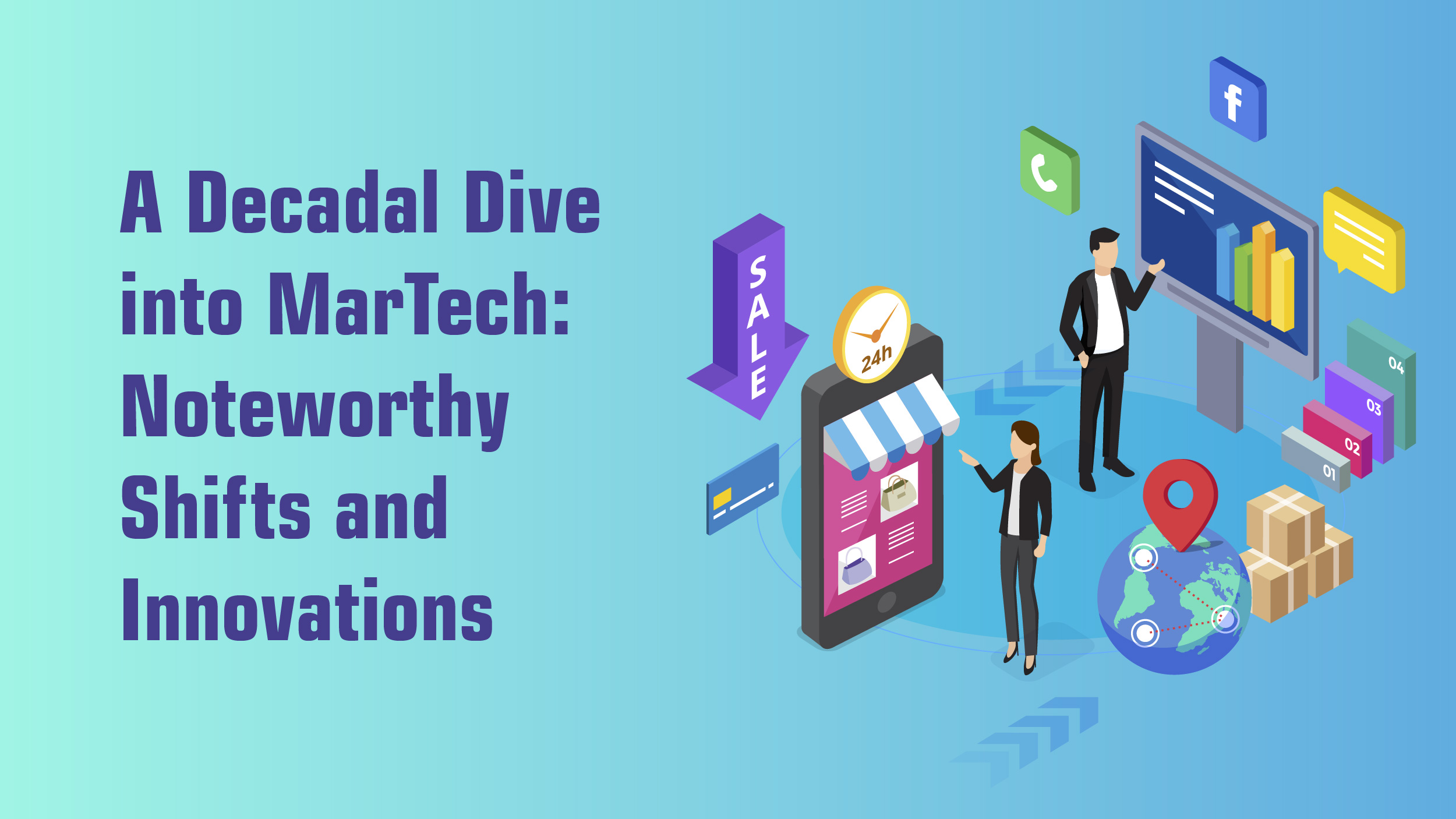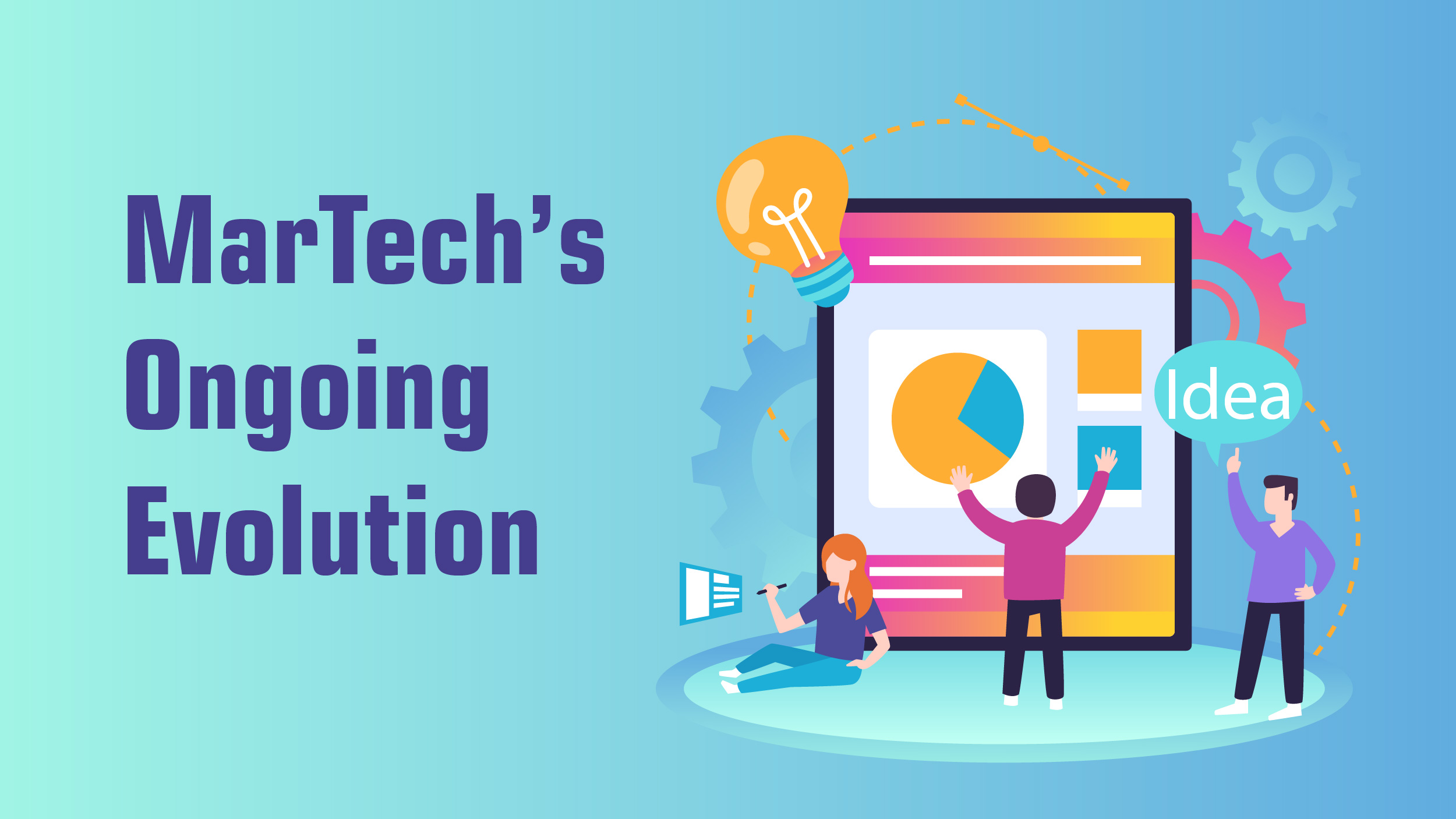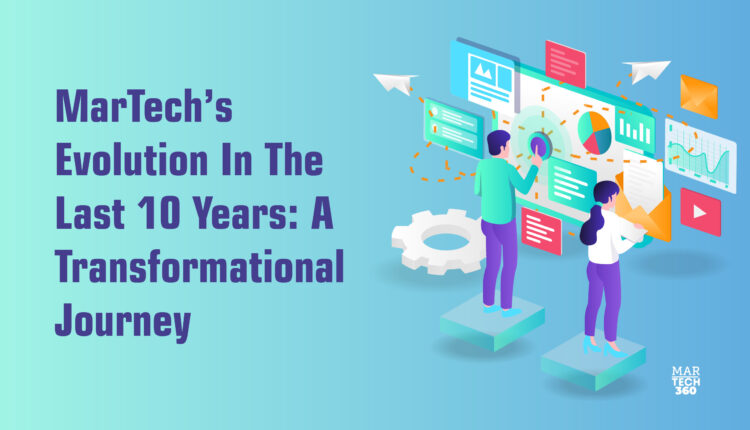Over the past decade, the landscape of marketing technology, or MarTech, has undergone a revolutionary transformation. From humble beginnings, where marketing technology was limited to basic tools like email marketing platforms and simple analytics, we now find ourselves in an era of sophisticated AI-driven systems, comprehensive customer data platforms, and highly targeted automation tools. This evolution has not only reshaped the way businesses market their products and services but has also fundamentally altered the nature of customer engagement.
As we move forward in this blog, we’ll take a deep dive into the significant shifts and innovations that have characterized MarTech’s journey over the last ten years. But first, let’s get a quick understanding of what exactly it is.
What is MarTech?
MarTech, short for marketing technology, encompasses the software and applications employed by marketing teams for strategizing, executing, and evaluating campaigns. This broad category of tools can encompass a wide range of functions, including social media management, email marketing, website maintenance, and digital asset management.
The marketing technology stack, which is a collection of technologies made to streamline your efforts, is what marketers normally rely on. Your business can gain from using the correct set of tools by:
- Integrating technology: While certain marketing applications and tools operate independently, a significant number of them offer seamless integration capabilities with each other. This integration serves to alleviate your workload and streamline various tasks efficiently.
- Automating processes: Numerous technology applications automatically gather and examine data pertaining to your marketing initiatives. This sets you up to concentrate on higher-level work by reducing the amount of manual labor your team has to do.
- Increasing productivity: Marketing technology products can help your team save time since they let you prioritize automation and efficiency. This implies that you can complete activities more quickly and do more in less time.
- Improving results: The standard MarTech stack processes a large variety of data, allowing for the development of deeper analysis. Your team may enhance future campaign results by going over and acting on these findings.
- Optimizing strategies: You can spot patterns and trends when your team uses this technology to evaluate insights and collect data. These results can then be used by your team to modify, enhance, and improve marketing campaigns.
Fortunately, MarTech is still evolving although at a modest pace. Nonetheless, now that the dust is settling, we can discern the clear trajectory of its evolution.
A Decadal Dive into MarTech: Noteworthy Shifts and Innovations
 The technology has undergone a revolutionary transformation over the years, bringing about significant changes. Below, we’ll explore some of the key developments that have occurred in this landscape over the past decade.
The technology has undergone a revolutionary transformation over the years, bringing about significant changes. Below, we’ll explore some of the key developments that have occurred in this landscape over the past decade.
● The Emergence of Customer-Centricity
One of the most notable trends in MarTech has been the shift towards customer-centricity. Ten years ago, marketing efforts were often mass-produced and lacked personalization. Today, thanks to advancements in AI and machine learning, businesses can gather and analyze vast amounts of customer data to create highly personalized marketing campaigns. This shift has not only led to higher conversion rates but has also improved customer satisfaction and loyalty.
● Rise of Marketing Automation
Marketing automation platforms have become indispensable for businesses of all sizes. These tools allow marketers to streamline their efforts, from lead generation and nurturing to customer retention. The last decade has witnessed a significant expansion in the capabilities of these platforms. They now incorporate AI-driven algorithms that can predict customer behavior, enabling marketers to deploy highly targeted campaigns with precision.
● Integration of AI and Machine Learning
Artificial Intelligence (AI) and Machine Learning (ML) have emerged as game-changers in MarTech. These technologies have enabled marketers to process and analyze data at an unprecedented scale and speed. This, in turn, has empowered them to make data-driven decisions, enhance personalization, and optimize campaigns in real time. Chatbots, for example, have become sophisticated conversational agents that provide instant support and engagement to customers.
● The Birth and Maturation of Customer Data Platforms (CDPs)
In the last decade, CDPs have gained significant momentum. These platforms serve as centralized hubs for collecting, analyzing, and utilizing customer data from various touchpoints. This development has been instrumental in breaking down data silos within organizations, allowing for a holistic view of the customer journey. As a result, businesses can deliver seamless and consistent experiences across all channels.
● The Proliferation of Social Media Marketing
Social media has become an integral part of a MarTech strategy. Over the past ten years, platforms like Facebook, Twitter, Instagram, and LinkedIn have evolved from mere networking sites to powerful marketing channels. Marketers can now leverage these platforms for highly targeted advertising, influencer collaborations, and real-time customer engagement.
● Video Marketing Dominance
Video content has witnessed explosive growth in the last decade. With the rise of platforms like YouTube, TikTok, and Instagram Stories, video marketing has become an essential component of your business growth strategy. The advent of live streaming and interactive videos has allowed businesses to engage with their audiences in more dynamic and immersive ways.
● The Paradigm Shift in Email Marketing
Email marketing, a stalwart of marketing tools, has undergone a massive transformation. Marketers now employ sophisticated automation, personalization, and segmentation techniques to deliver highly relevant and timely content. Additionally, the rise of mobile devices has led to the optimization of email campaigns for mobile, ensuring that messages reach customers wherever they are.
● Privacy Concerns and Regulatory Changes
In recent years, privacy concerns and regulatory changes have significantly impacted MarTech. The implementation of regulations like GDPR and CCPA has forced marketers to prioritize data protection and transparency. This shift has led to a greater emphasis on establishing explicit consent, secure data handling practices, and transparent communication with customers.
● The Emergence of Account-Based Marketing (ABM)
Account-based marketing has gained traction as a highly targeted approach to B2B marketing. It involves tailoring marketing efforts towards specific high-value accounts, rather than a broad audience. With the aid of advanced analytics and automation tools, businesses can identify and engage key stakeholders within target accounts, resulting in more personalized and effective outreach.
MarTech’s Ongoing Evolution
 The last ten years have witnessed a remarkable evolution in marketing technology. From basic email marketing platforms to sophisticated AI-driven systems, the landscape has transformed, enabling businesses to engage with customers in more personalized, efficient, and data-driven ways. As we move forward, it’s clear that MarTech will continue to be at the forefront of marketing strategies, driving innovation and reshaping customer experience.
The last ten years have witnessed a remarkable evolution in marketing technology. From basic email marketing platforms to sophisticated AI-driven systems, the landscape has transformed, enabling businesses to engage with customers in more personalized, efficient, and data-driven ways. As we move forward, it’s clear that MarTech will continue to be at the forefront of marketing strategies, driving innovation and reshaping customer experience.
a train at the airport, yes, pointless. MarTech is the literal combination of MARKETING + TECHNOLOGY. It uses technology to combine and automate multiple processes while deliberately using Artificial Intelligence and Machine Learning (AI and ML) technologies to optimize management. Ever since marketing technology solutions became available they have been majorly helping to create, communicate, and deliver offerings.
For example, Customer Relationship Management (CRM) software brought a major turnaround in the MarTech world. From the moment a lead converts into a customer to their journey of growth till retention, CRM tools have been extremely useful to efficiently track this journey. Soon after CRM became available to companies it disrupted the MarTech industry and there’s no turning back now. In the last decade, there have been many new entries in the MarTech stack. Today, we have tools like CRM, Campaign Management, Marketing Automation, etc., which cater to different types of businesses and best fit in various marketing roles.
Growth wise marketing technology has witnessed a severe boost in the last decade. Scott Brinker, now the Godfather of MarTech, thought of releasing his most famous visualizations of MarTech called the MarTech Landscape. This started exactly a decade ago in 2011 with only 150 companies and expanded to 8,000 companies in 2020 and has now touched a whopping 9,932 MarTech solutions.


Comments are closed.